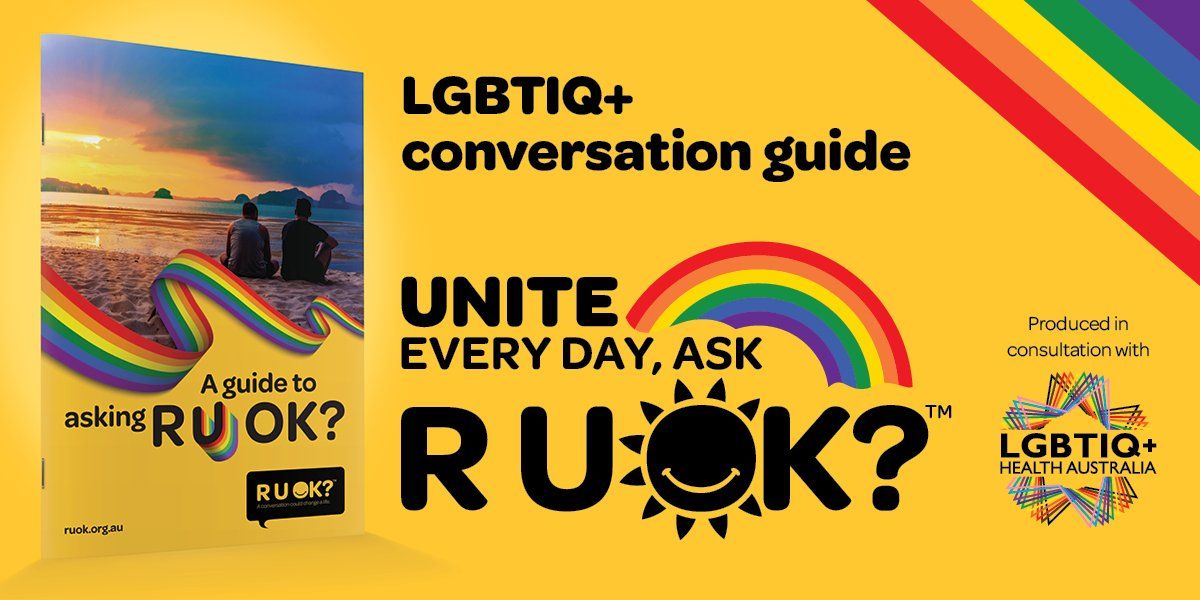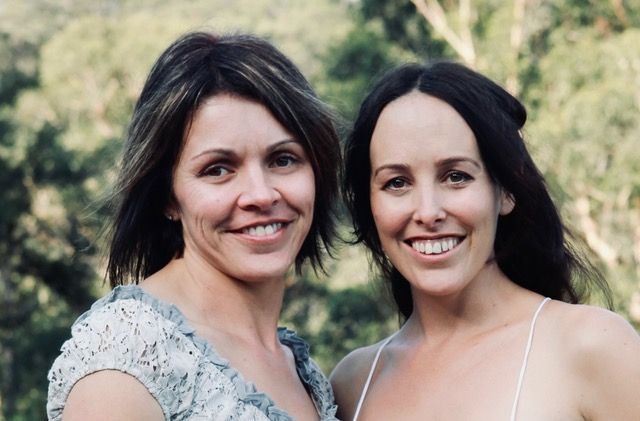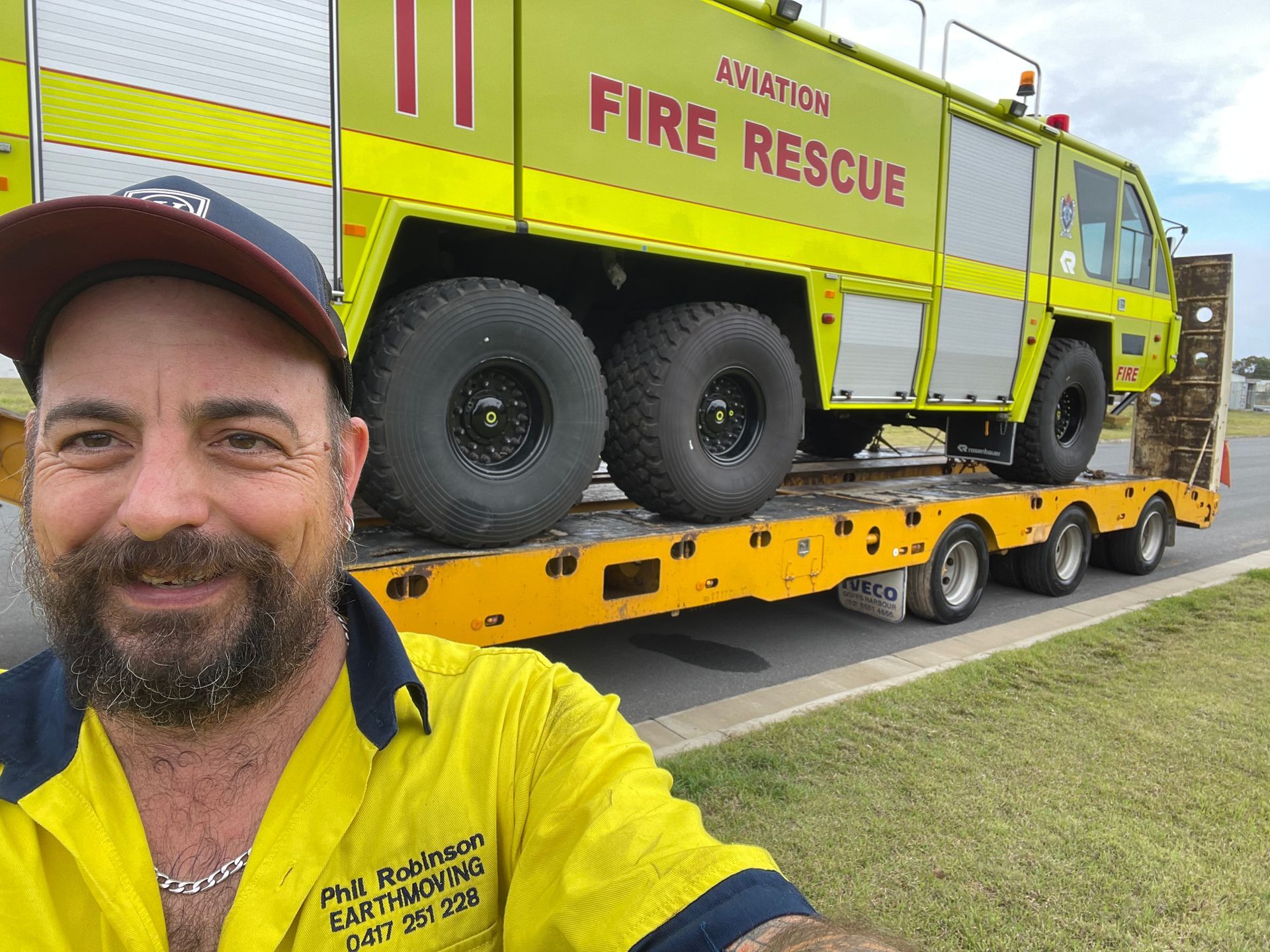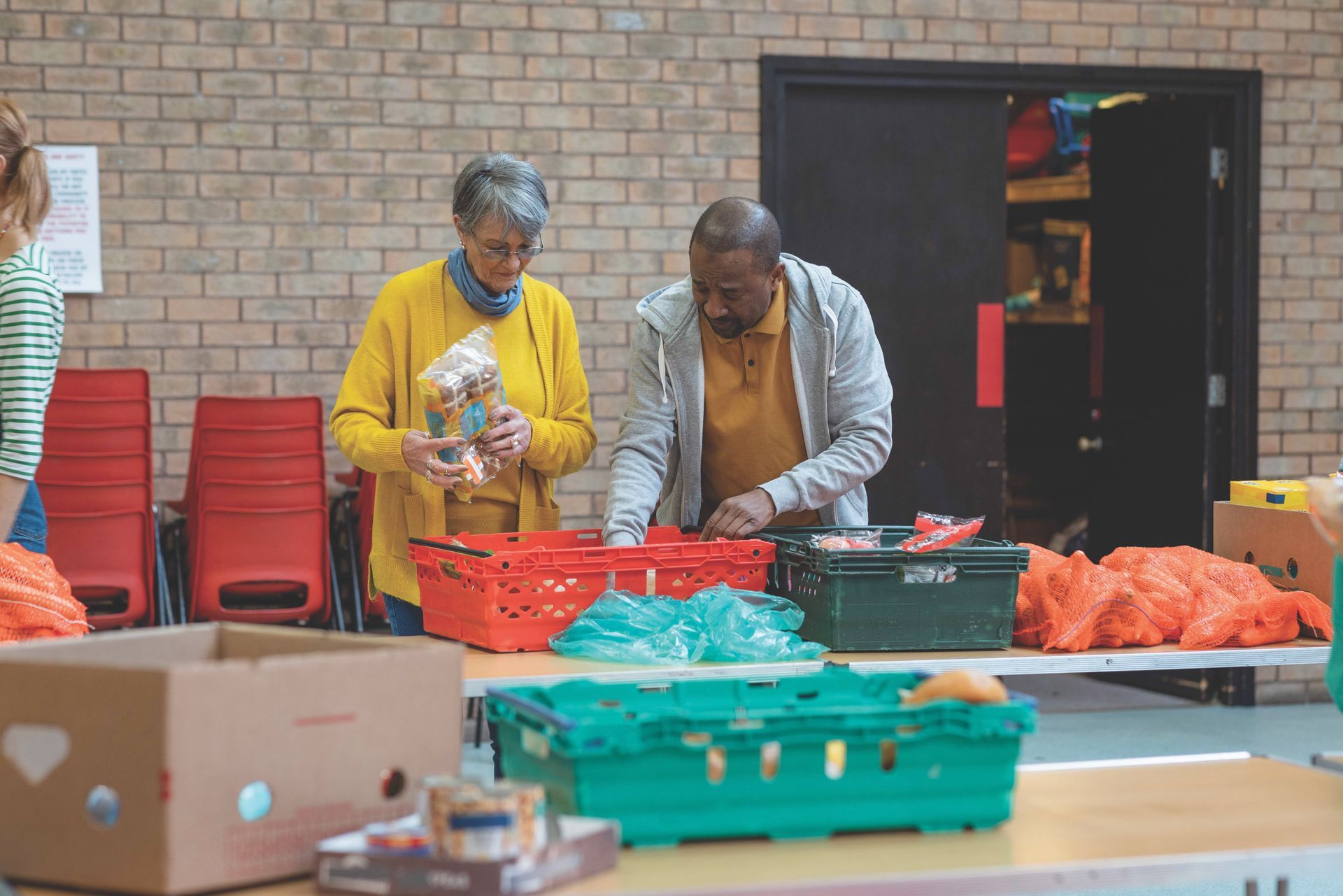How to look out for your mates during Mardi Gras and beyond
For many, LGBTIQ+ community events such as Mardi Gras can be a time of great joy and celebration. But they can also present some challenges for them. Here's how you can support those you care about.
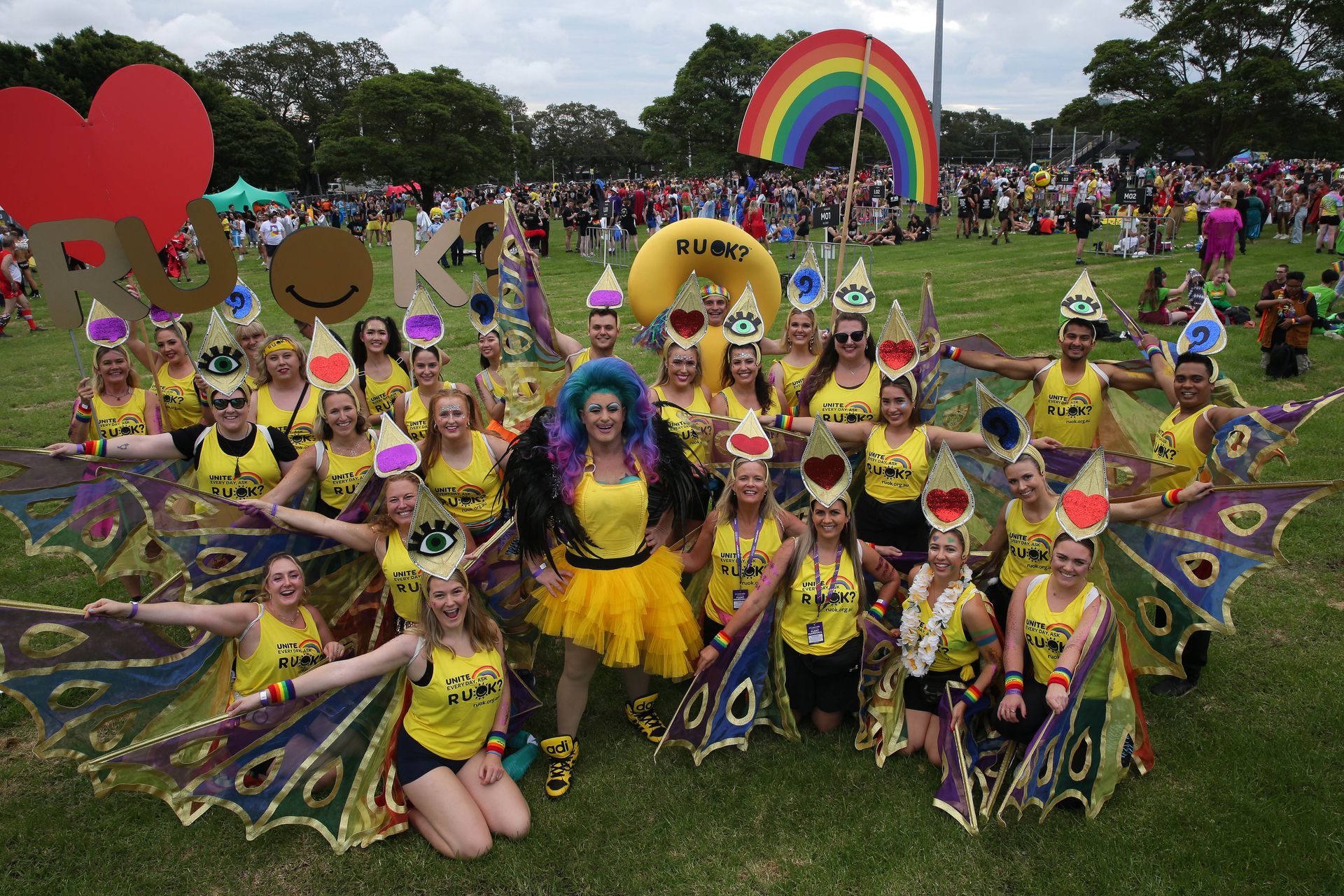
“It’s the one time of the year that LGBTQIA+ communities come together and celebrate. You get to see all of that diversity in one place and all of the support from the wider community. I think that’s powerful,” said Craig Mack, an R U OK? Community Ambassador.
“I remember my first Mardi Gras,” R U OK? Community Ambassador Genevieve Blackman recalled. “I’d only come out a year before and was still really uncomfortable telling people what my sexual identity was.”
“As I was standing up in the crowd and watching the rest of the parade, I remember feeling this overwhelming sense of connectivity. I felt like ‘these are my people’ and I felt all of the love in the atmosphere.
“Mardi Gras helped me learn that my identity is something that I don’t need to be afraid of. I’m really proud of it.”
Amongst the many positives, LGBTIQ+ community events can be challenging for some.
“Pride events can be really fun, but they can also be really tough . There can be a multitude of reasons why you might not enjoy the festival” said Genevieve.
Those reasons might include feeling exhausted or overwhelmed by busy event schedules, or feeling pressure from social circles to attend. “It’s really easy to get caught up in the excitement,” said Craig, “but you can experience a bit of a festival come -down afterwards.”

Craig says diversity of circumstance can also play a role. “As much as we talk about these events being inclusive, there are so many reasons why people can feel excluded,” he continued.
“Whether it's being able to afford the costs of the events, or body image and the pressures to ‘look good’, or accessibility issues… it can be mentally exhausting.”
The events can also come with a level of identity discomfort for some, explained Genevieve. “Sometimes you might feel imposter syndrome. There can be a challenge of trying really hard to find your subgroup and not quite seeing it at these events”.
“Or there can also be a pressure to define what your labels are… there are many people that don’t like labels or don’t quite know what their label is,” she added.
The events can even bring up some tough emotions and can be a reminder of past and present struggles.
“It can also be a reminder of the old days of not being comfortable with who I am,” said Genevieve.
“For those whose families aren’t fully accepting of who they are, it can bring up feelings of loss and grief,” agreed Craig.
This Conversation Guide contains tips to help you know when and how to ask someone who is gender, bodily or sexuality diverse, 'are you OK?', in a safe and supportive way.
There’s also the fact that not every event is suited to every member from LGBTIQ+ communities. “You’re going to find people that love the party scene and people that don’t like it at all. And that’s OK. You can still be really proud but not want to be involved in these events," said Craig.
For those who are struggling, check-in conversations and peer-to-peer support can make a positive difference.
“If you notice that a friend is disengaged in conversation, if they're not writing back to your text messages and they're normally pretty good at that, or if they're declining invitations, just checking in and seeing if there’s something going on or something they want to talk about is a good idea,” Genevieve said.
“It’s just about watching out for what state your friends are in. It comes down to what their normal behaviours are and noticing if there’s a change,” Craig said.
“That’s when you know it’s a good idea to thoughtfully pull them aside for a conversation.
“Just start with simple questions like, ‘What's going on?’, ‘What's on your mind?’, ‘I’ve noticed you’re stressed’. It’s just about giving people a safe space to open up,” he said.
The 4 steps of an R U OK? conversation
- Ask: the question in any way that feels genuine for you.
- Listen: with an open mind and encourage them to elaborate.
- Encourage action: whether it’s something you can do in the moment or accessing further professional support.
- Check in: at a later time to see how they’re tracking.
Both Craig and Genevieve say that looking out for one another and checking in isn’t something you need to have life experience to do.
“If you’re not a part of LGBTIQ+ communities, but you're an ally, and you want to reach out to someone and you’re not quite sure what to say, you can just take that aspect out of the conversation and just check in with them like you would a friend in any normal circumstance,” said Genevieve.
Craig agreed, “It doesn't matter. What matters is being there as a friend for that person. It’s not about giving them all the answers. It's about making them feel supported.”
“If you feel as though you can’t support them, or that it’s beyond your knowledge, just remember that there are a bunch of places that can.”
It’s important to remember that asking R U OK? doesn’t always have to be a conversation when someone is visibly struggling. Genevieve recommends getting into good habits and staying connected throughout the year.
“I’ve been texting my friends and checking in more regularly and see if they’re OK or see if they're up for the events. And then I'm not afraid to send a follow up message if I don't get a reply in a couple of days,” she said.
“I always think that it's better to over-communicate than under-communicate, because the most important thing is that they know that you care. So they'll receive the text message, and they'll know ‘that person cares about me, I'm not alone’.”
Finding Help
Lifeline - 13 11 14
24/7
Call for a listening ear or crisis support. Text support is also available: 0477 13 11 14.
QLife - 1800 184 527
3pm - midnight local time every day.
Phone and online anonymous and free LGBTI support and referral for people in Australia wanting to talk about sexuality, identity, gender, bodies, feelings or relationships.
How to access a mental health care plan and see a psychologist
If you are concerned for your safety or the safety of others, seek immediate assistance by calling Triple Zero (000) .


